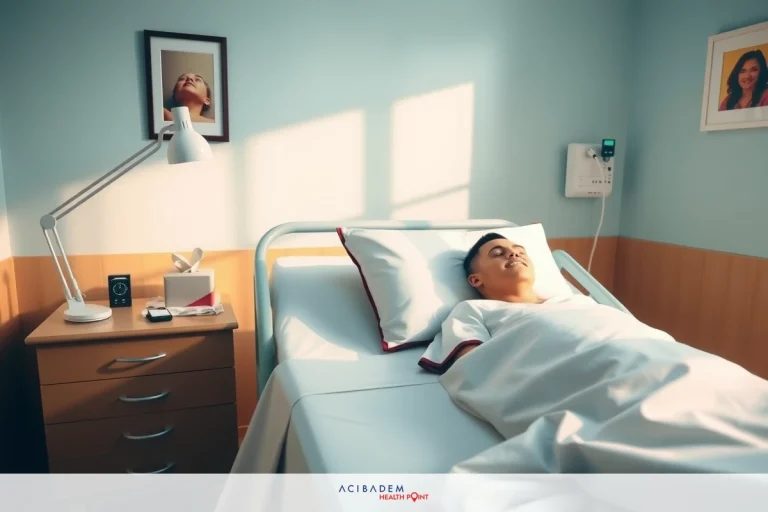Is it Normal to Have a Stuffy Nose After Rhinoplasty?
Is it Normal to Have a Stuffy Nose After Rhinoplasty? Rhinoplasty, colloquially termed as “nose job”, often triggers an array of bodily responses. One such common response is nasal congestion or a stuffy nose. This occurrence can be discomforting and may cause worry for patients. With the right knowledge, though, apprehension over this issue can be alleviated.
Nasal congestion post-rhinoplasty stems from various factors which contribute to its prevalence. The duration varies across different individuals and cases; some experience relief within days while others might take weeks. To manage these conditions effectively, understanding the underlying causes becomes vital.
The aim here is not just to elucidate but also guide through practical steps in addressing the issue of stuffiness post-rhinoplasty – using scientific insights and expert advice without dwelling into complicated medical jargon.
Causes
In the aftermath of a rhinoplasty procedure, it’s not uncommon for patients to experience a stuffy nose. Primarily, this phenomenon can be attributed to natural physiological responses in the healing process post-surgery. The nasal tissues swell up as they repair themselves and this swelling narrows down the nasal passages leading to congestion or what we perceive as a “stuffy” nose.
Another significant cause is related directly to the invasiveness of rhinoplasty surgery itself. During the operation, changes are made internally that may affect airflow temporarily during recovery. This direct manipulation causes trauma which results in inflammation and consequently, contributes significantly towards post-rhinoplasty nasal congestion.
Additionally, while addressing these common side effects of rhinoplasty, one should note that infection might also play a role in causing stuffiness after surgery although less commonly so. Post-operative infections could lead to increased swelling beyond normal levels disrupting regular air passage through nostrils further extending recovery time.
It’s important for anyone recovering from rhinoplasty surgery not only understand these causes but also acknowledge them as part-and-parcel of their healing journey rather than an alarming complication. However if symptoms persist longer than expected or intensify suddenly then medical attention should certainly be sought out without delay.
Duration of Stuffy Nose
Post-rhinoplasty, patients often wonder about the duration for which they might face nasal congestion. The timeline is not fixed and can vary from one individual to another. It’s essential to remember that the body heals at its own pace – some may find respite in a week or two while others could experience symptoms for several weeks.
The critical determinant of this variation lies in factors such as the complexity of surgery performed, overall health status of the patient, adherence to post-surgery care instructions and personal healing ability. In general terms though, most people start noticing improvement after the initial couple of weeks following rhinoplasty when swelling starts subsiding progressively.
As recovery advances further past these first few weeks, it’s expected that stuffiness should diminish gradually too. However, complete resolution might take up till six months post-surgery as internal tissues continue their gradual healing process without visible external cues. Thus patience becomes an integral part during this phase.
It bears repeating that if you notice your condition worsening or persisting beyond anticipated timelines then

consulting with your surgeon becomes imperative for reassessment. Remember each case is unique and there isn’t a one-size-fits-all answer when it comes down to recovery timeframes particularly concerning side effects like stuffy nose post-rhinoplasty.
Managing a Stuffy Nose
In the recovery phase post-rhinoplasty, managing symptoms like nasal congestion becomes crucial for patient comfort. While it’s common to feel stuffiness due to swelling and inflammation, there are various tips and remedies that can be employed to alleviate this condition.
Hydration is paramount. Drinking plenty of fluids not only keeps you hydrated but also aids in thinning mucus, thereby alleviating stuffiness.
Humidifiers can help by keeping your nasal and throat passages moist. This is especially beneficial during dry seasons or if you’re living in arid climates.
Saline sprays are an over-the-counter solution that helps keep your nasal passages moist making them effective at reducing stuffiness.
Avoiding potential irritants such as smoke or allergens reduces chances of exacerbating existing congestion issues.
Light physical activity could help improve overall blood flow which might assist in reducing inflammations faster leading to quicker relief from stuffiness.
By incorporating these practical steps into their daily routine during recovery period after rhinoplasty patients can manage the discomfort associated with a stuffy nose more effectively. However remember these measures should complement rather than replace any medical advice provided by healthcare professionals overseeing your case. If problems persist despite following given instructions don’t hesitate seeking medical attention promptly as necessary precautions always prove vital in ensuring successful recoveries post-surgeries like rhinoplasty.
Frequently Asked Questions
Why do I have a stuffy nose after my rhinoplasty?
It's common to experience nasal congestion post-rhinoplasty due to the swelling of internal tissues during the recovery process. Also, changes made internally during surgery can temporarily affect airflow.
How long will this stuffiness last?
The duration varies with each individual and depends on factors such as complexity of surgery, overall health status, and personal healing ability. Generally, you can expect improvement in a couple of weeks when the initial swelling starts subsiding.
What steps can I take at home to manage my stuffy nose?
Hydrating frequently, using humidifiers or saline sprays for moisture, avoiding irritants like smoke or allergens and engaging in light physical activity might help alleviate your symptoms.
Should I consult my surgeon if my condition persists beyond a few weeks?
Yes. If your symptoms worsen or persist beyond expected timelines then its important to seek medical advice from your surgeon for further evaluation.











